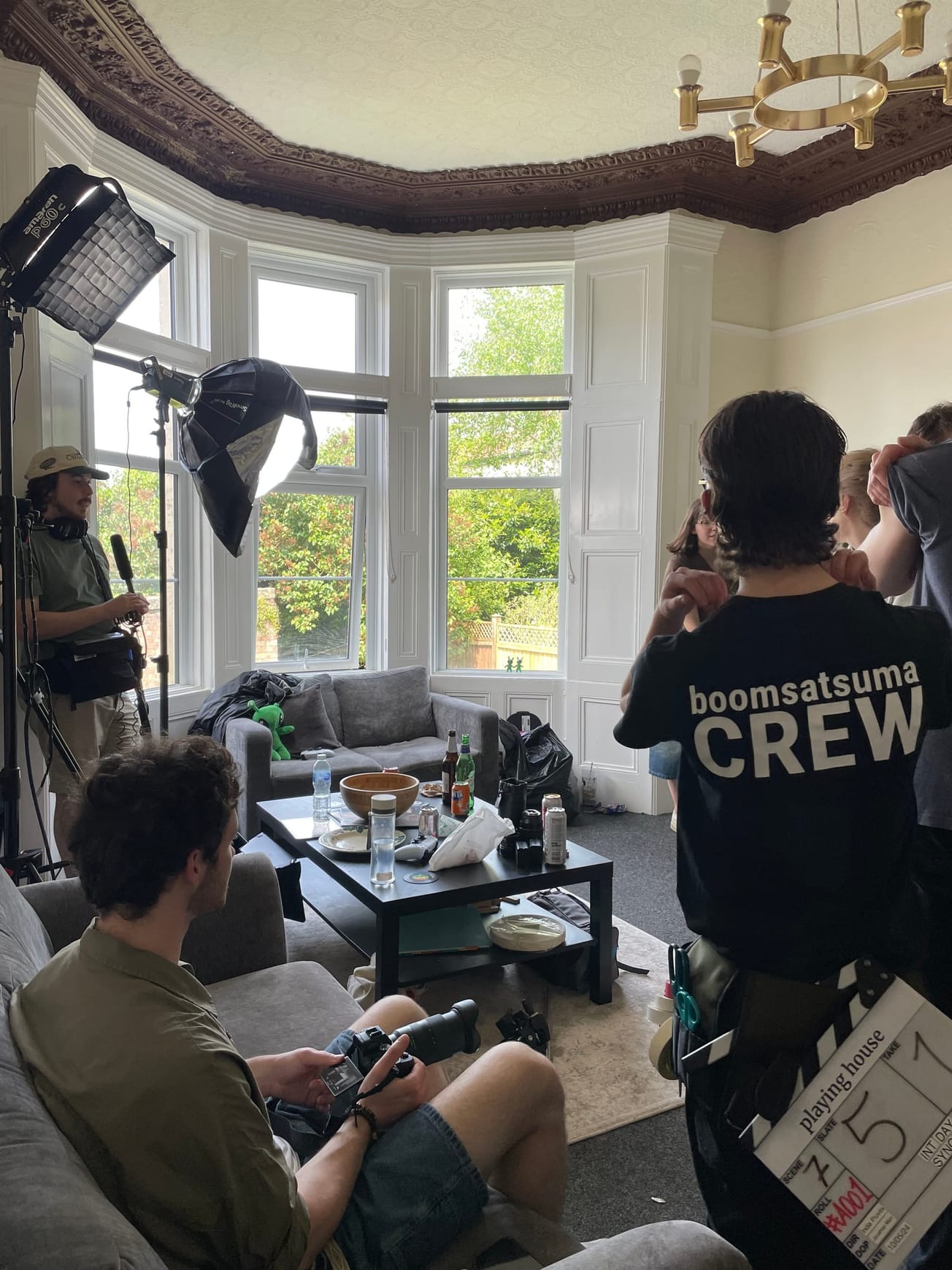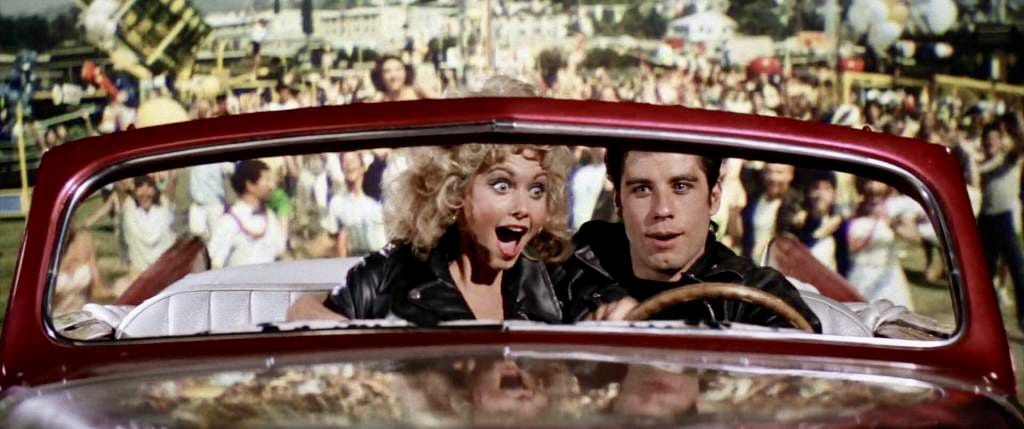Evelyn Heis, Film & TV Editor
The Worst Person in the World (2021)
As this academic year and my editorial position come to a close, my parting gift to you all is this brilliant gem of a film. I won’t lie to you, though. Getting hit by a car would hurt less than watching this movie. But it is so beautiful and eye-opening that it would be wrong for me not to put it on a pedestal as one of the best films I have ever seen.
It follows the life of a twenty-something-year-old student who has no idea what she wants to do with her life (relatable, right?), who switches career paths, hair colours and styles, meets new people, makes mistakes, experiments with drugs, tries new things, gives up, falls in love, falls out of love — and is really just navigating adulthood and life. Through it all, she constantly feels like she’s the worst person in the world. (She’s so me).
This film is a snapshot of a place we all find ourselves in at this point in our lives, desperately trying to find ourselves and navigate the complexities of life, and it is told in such a captivating way it’s no wonder it won two Oscars last year. The unique cinematography and music that accompanies each scene elevate this film into that of a masterpiece. It reminded me a lot of La La Land (2016) and Frances Ha (2012), with its heartwrenching relatability and breathtaking cinematography, and this film has become one of my go-to's and favourites.
I seriously can’t recommend it enough.
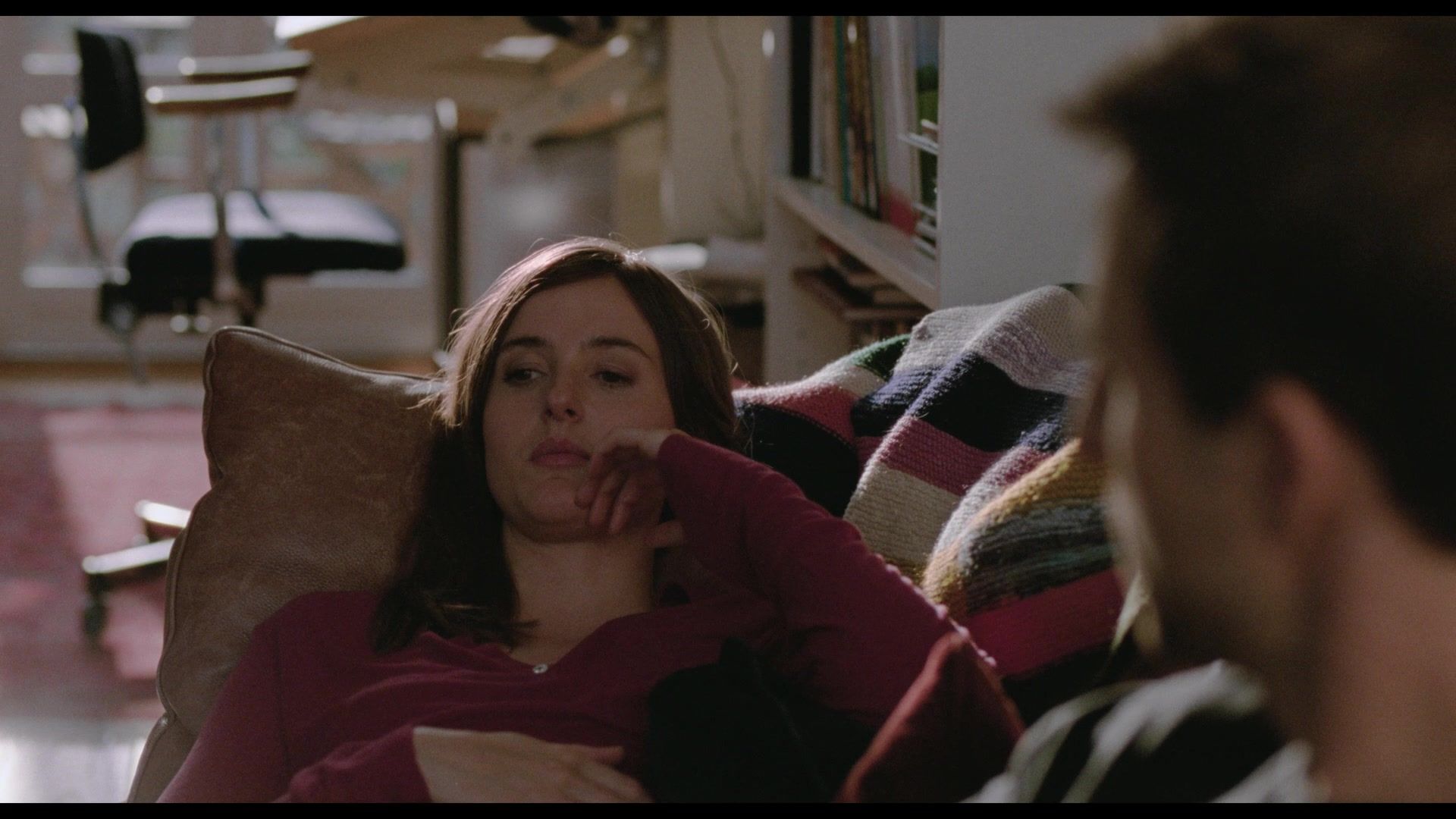
Jake Tickle, Deputy Film & TV Editor
Fantastic Mr Fox (2009)
When I think about my favourite must-see films, they are all mostly animated. I don’t know exactly what it is that seems to capture my attention like an animated film does, but they all just seem to scream nostalgia to me. The one film, in particular, I would recommend, though, is Wes Anderson’s 2009 stop-motion masterpiece: Fantastic Mr Fox.
Anderson’s interpretation of Roald Dahl’s classic of the same title takes the themes explored in the book and flips them on their head. He creates a human-like world where foxes, badgers, moles (and more) are lawyers, real estate agents and bandits. Fantastic Mr Fox really walked so Zootropolis (2016) could run.
Anderson’s sense of humour and his twitchy/awkward characters translate perfectly into stop-motion. It ties together themes of family, class and crime into a film that is poignant and perfectly concise, clocking in at only 90 minutes.
It has a brilliant balance of witty one-liners and dry humour, with beautiful moments of sentimentality. If you haven’t seen it yet, this is your sign!
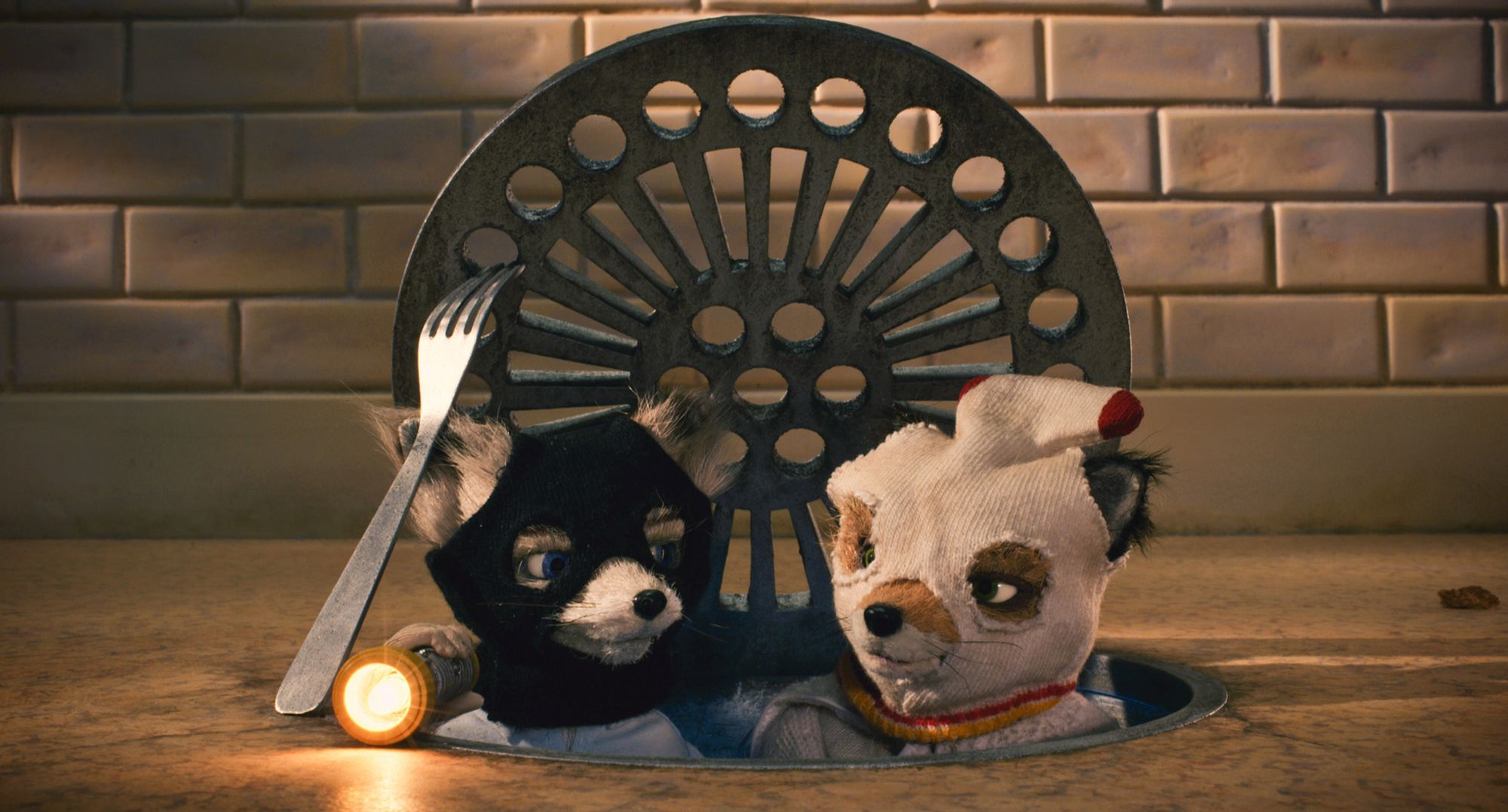
Amelia Jacob, Digital Film & TV Editor
Bridesmaids (2011)
Let’s just say this: if Bridesmaids (2011) has a million fans, then I'm one of them. If Bridesmaids has one fan, then I'm THAT ONE. If Bridesmaids has no fans, that means I'm dead. Bridesmaids is a film I have watched so many times I feel like I could quote it from memory, and yet each time I watch it, I laugh like I’m seeing it for the first time.
Though almost always ridiculous – I’m thinking of Rebel Wilson’s atrocious English accent, Kristen Wiig’s icy takedown of a teenager in the jewellery store and, of course, the infamous food poisoning scene in the bridal shop – I’m firmly in the camp that Bridesmaids is about so much more than female friendship. Helen (Rose Byrne)’s loneliness and the disconnection between Lillian (May Rudolph) and Annie (Kristen Wiig, in exceptional form) are poignant and truthful scenes that established the messy millennial trope we know and love today.
Let this serve as a reminder to re-watch it immediately!
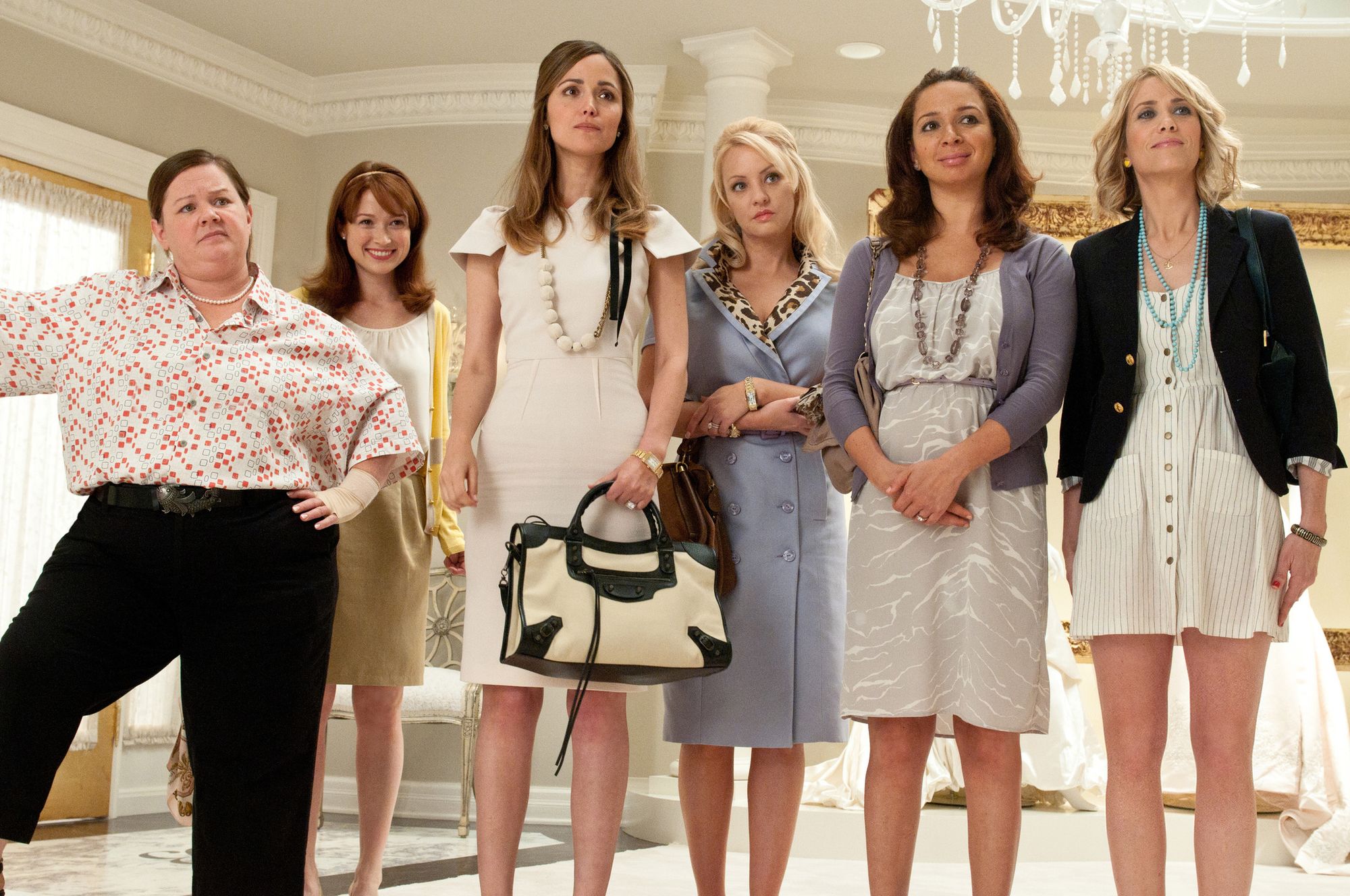
Kalila Smith, Film & TV Investigations Editor
The Big Short (2015)
One film I will stand by until the end of time is The Big Short (2015), directed by Adam McKay. McKay has such a unique style, confronting human behaviour through dark irony and dichotomies whilst balancing it out with introspective tones and moments of sincerity amidst the humorous chaos.
The Big Short is based on a true story of low-profile bankers who predicted and consequently profited from the 2008 financial crash. It explains how the crash happened in an accessible way, challenging institutions who use convoluted terminology to make their realm seem pseudo-intellectual and therefore unreachable to the public, whilst also exposing the public for only engaging with harsh realities and hard-hitting information when it is presented in an entertaining format.
It has a stellar cast with Steve Carrell as a pessimistic, run-down banker, Ryan Gosling as the stereotypical gluttonous banker, and Christian Bale as one of the most socially inept but entertaining characters I have watched.
McKay beautifully criticises audiences’ normalisation of corrupted human behaviour and institutions. The meta nature of the film forces you to engage with the themes and financial concepts being thrown at you and question your blissful, chosen ignorance - a common thread in McKay’s films.
If you want a self-examining film with exceptional writing and comedic timing, you need to watch The Big Short.
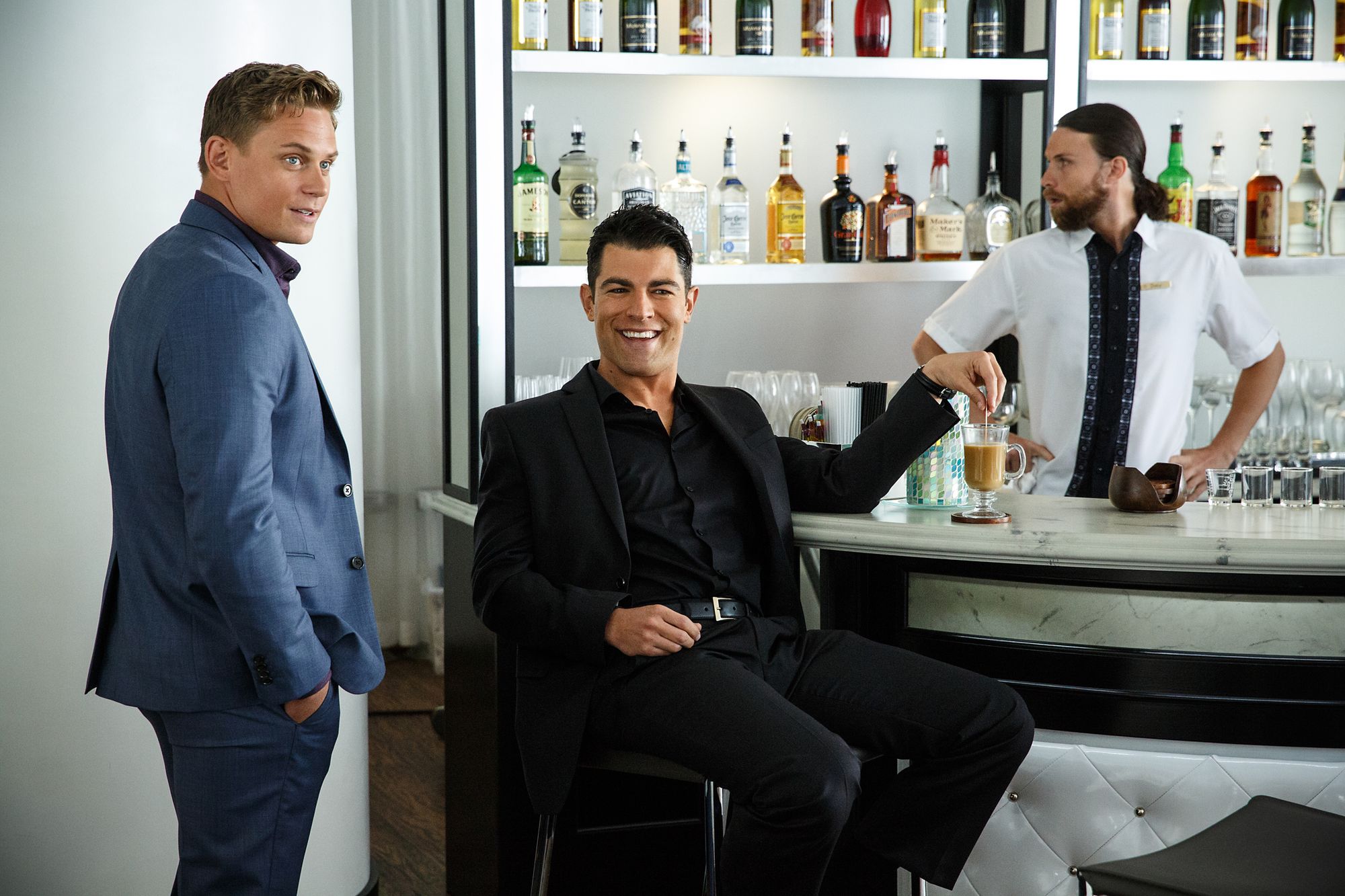
Claire Meakins, Subeditor and Film & TV Critic
It would be a crime to have not recommended Black Swan (2010) throughout my time on the editorial team. It has recently acquired a new fan base through the popularity of the ‘ballet-core’ aesthetic; it’s brilliant to see that more people are watching the film, but also slightly worrying that so many girls want to adopt the fashion and lifestyle of a psychotic ballerina. I guess one shouldn’t judge…
Black Swan follows Nina (Natalie Portman), who is chosen to play the role of the black swan in the New York City Ballet company’s production of Swan Lake. Nina is shy and innocent, an unlikely candidate for a role which requires a dark and sensuous performance.
A newcomer to the company, Lily (Mila Kunis), is an obvious fit for the black swan but is instead chosen to be the white swan, the part in which Nina would objectively be better in. The result is an all-consuming rivalry, with Nina feeling a constant pressure to perfectly embody her role.
This perfectionism causes Nina to lose her grip on reality, and the film, too, begins to descend into madness. Visual disturbances cloud her mind and the screen, creating an intense spiral that is impossible to look away from. It’s theatrical, passionate, and dark – much like the black swan herself – with an ending sequence that is truly haunting.
As we come into exam season, Black Swan is a good reminder that sometimes you do need a day off.
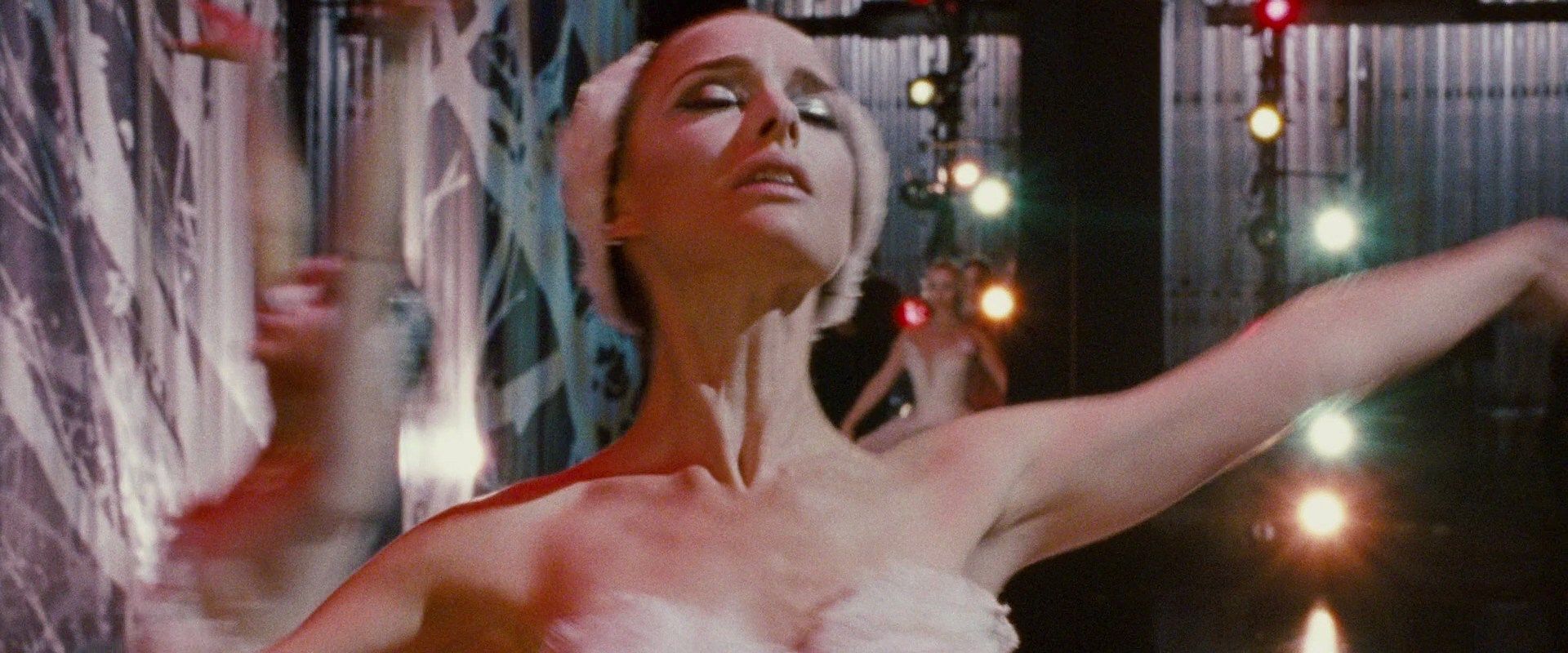
Featured Image: Courtesy of Amelia Jacob
Have you seen any of the Film & TV team's favourite films?


